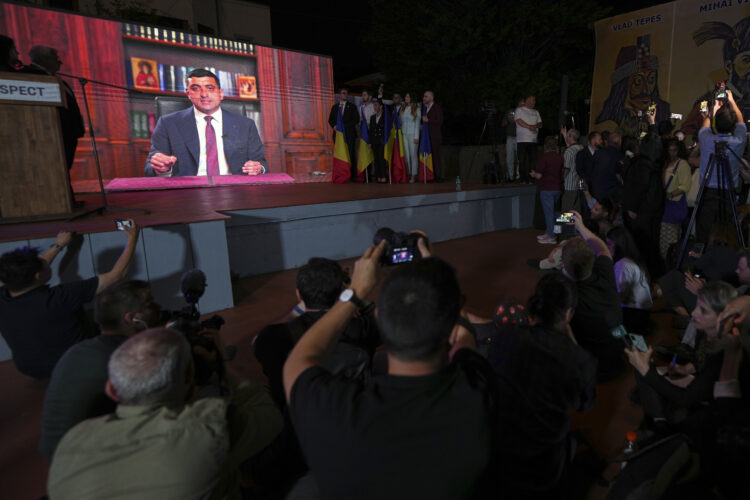Five months after the surprising annulment of the initial presidential elections, Romania has confirmed its nationalist shift in a new vote held on Sunday. George Simion, leader of the far-right AUR party and a vocal supporter of Donald Trump, secured around 40% of the vote after counting over 90% of ballots.
Trailing behind are two pro-European candidates, former Senate President Crin Antonescu and Bucharest Mayor Nicusor Dan, each with about 20%, setting the stage for a highly uncertain runoff on May 18.
“We made history today,” Simion said in a video message to cheering supporters, who chanted, “Thieves out, patriots in!”
Though Simion faces a tougher challenge in the runoff—experts note he has a smaller potential voter base than his rivals—the opposition is fractured. The first-round campaign was marked by fierce accusations and personal attacks, even between those likely to ally against Simion in the second round.
A total of 11 candidates ran for the largely ceremonial, but symbolically and diplomatically important role of president in this EU member state of 19 million, which has gained strategic importance due to Russia’s war on neighboring Ukraine.
Simion replaced controversial pro-Kremlin candidate Calin Georgescu, who won the annulled November election but was disqualified by Romania’s Constitutional Court following allegations of Russian interference and viral propaganda on TikTok.
Simion, who had placed fourth in November, surged by emphasizing his youth, nationalist rhetoric, and strong command of TikTok to appeal to Georgescu’s base.
Although Simion denies being pro-Russian, he shares a strong distrust of “Brussels bureaucrats” and opposes military aid to Ukraine.
Many voters expressed frustration with Romania’s long-dominant political parties and cited inflation and the desire for change as key motivations.
Behind the top three, former Prime Minister Victor Ponta, despite a Trump-style populist message, received less than 15%.
If elected, Simion has vowed to bring Georgescu back to power, proposing a referendum, snap parliamentary elections, or the formation of a coalition to appoint him prime minister.
After the annulment of November’s results—a rare event in the EU—Sunday’s vote was under heavy scrutiny. While thousands have protested the annulment as a “coup,” U.S. Vice President J.D. Vance also criticized the move, calling it a silencing of the people based on “weak intelligence suspicions.”
Authorities say they have learned from the past and increased preventative measures. While the far-right alleges ongoing fraud, the government points to foreign disinformation campaigns, though Russia was not explicitly mentioned this time.







